News
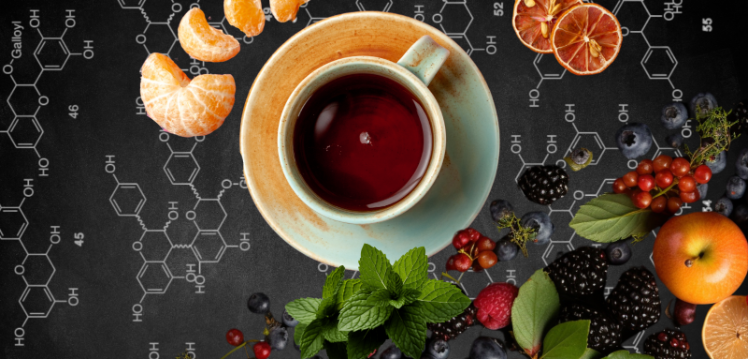
New research has found that those who consume a diverse range of foods rich in flavonoids, such as tea, berries, dark chocolate, and apples, could lower their risk of developing serious health conditions and have the potential to live longer.
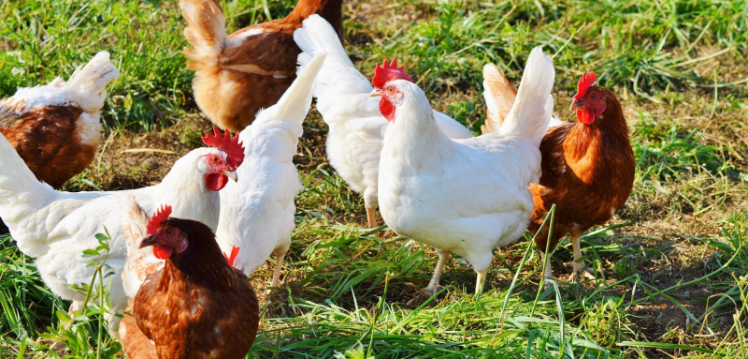
A first-of-its-kind study led by Queen’s University Belfast reveals contaminated crops on farms could be costing poultry organisations over £150,000 in losses annually.
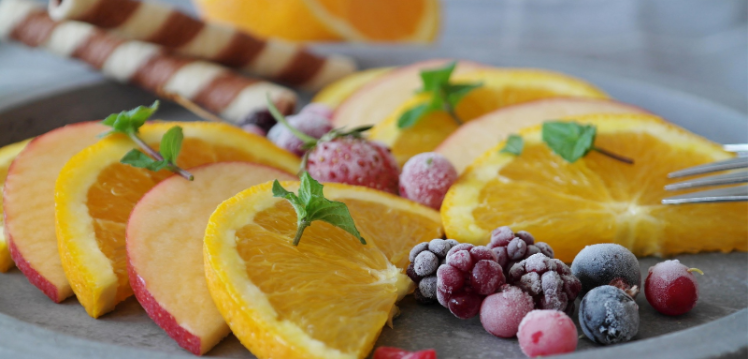
Higher intakes of black tea, berries, citrus fruits and apples could help to promote healthy ageing, new research has found.
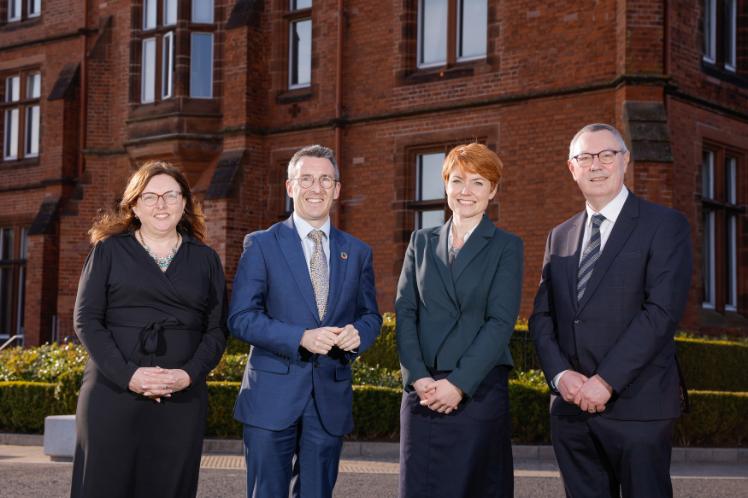
The event, which was supported by the Gibson Trust, is a cornerstone in the Northern Ireland agri-food calendar.
-750x454.png)
A first-of-its-kind study, led by Queen’s University Belfast, exposes the potentially harmful materials found in gum that are going unnoticed.
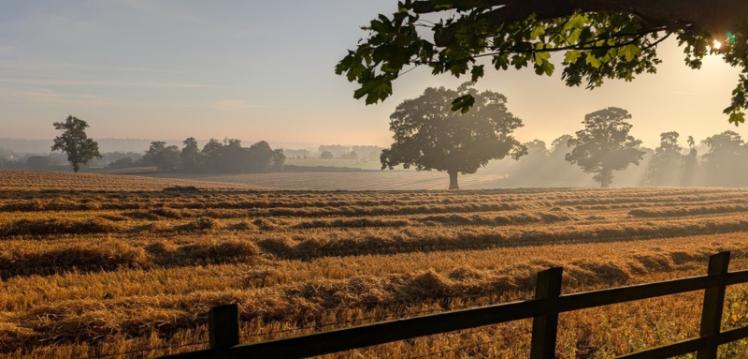
Warm temperatures and erratic rainfall due to climate change are taking a toll on Northern Ireland’s health and farming industry, a new study reveals.
-750x421.png)
A new study indicates animal populations living in urban areas show elevated resilience to stressful environmental conditions, with conservation implications.

Research at Queen’s is at the forefront of research to understand and manage the impacts of human-induced global change. Dr Daniel Pincheira-Donoso explains more.
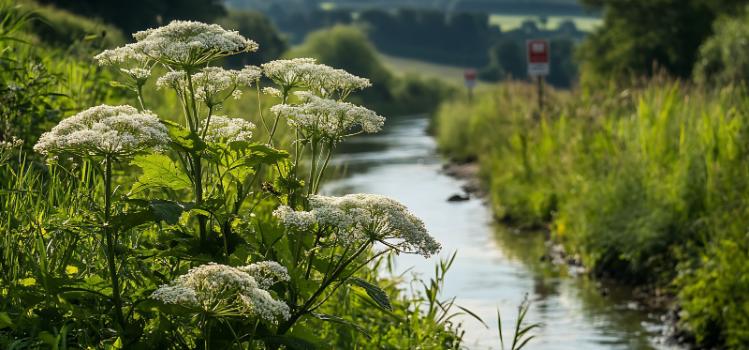
Dr Ross Cuthbert explores the growing environmental problem that threatens ecosystems, human health, and the economy.
-750x421.png)
Guidelines released for research and implementation of feed additives to reduce ruminant methane emissions.
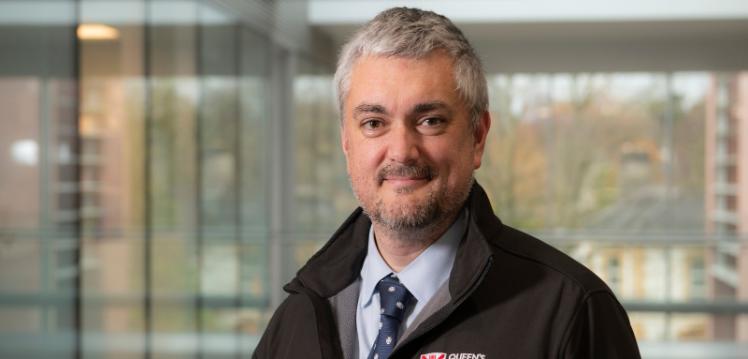
The School of Biological Sciences is deeply saddened by the passing of our esteemed colleague, friend and mentor to many, Professor Simon Doherty.
-750x470.png)
Five pioneering UK research projects have each received a share of £14.5 million funding under phase two of the transforming land use for net zero, nature and people programme.
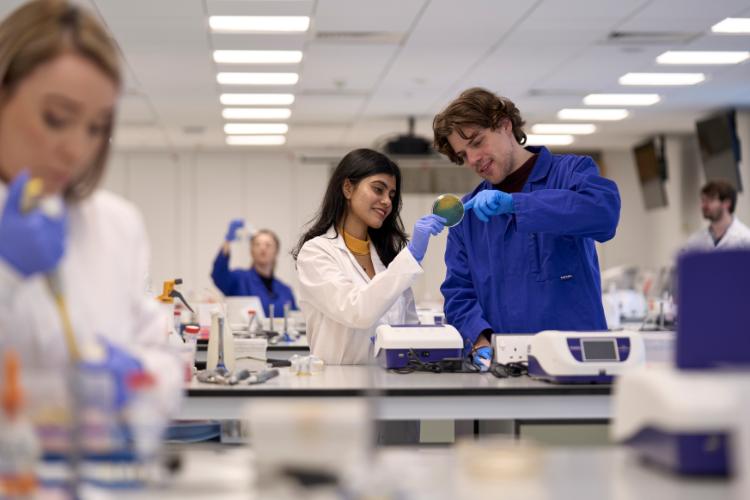
Queen’s University and Ulster University have been successful in a major, UK government funding award to train a new generation of PhD students in the joint area of AI and bio-sciences.
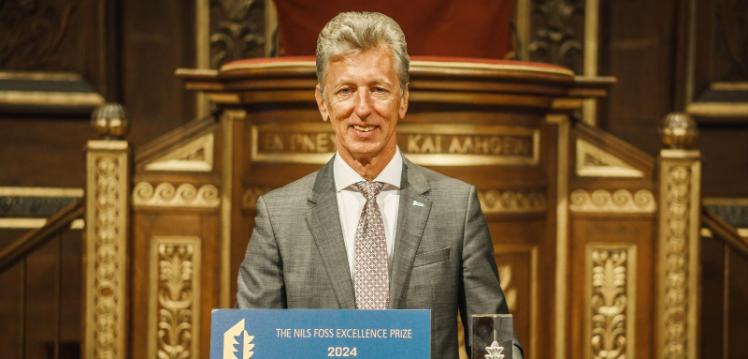
At a recent ceremony hosted in Copenhagen, Professor Rudolf Krska from Queen’s University Belfast was honoured with this year’s Nils Foss Excellence Prize.

Professor Simon Doherty, Senior Lecturer at Queen’s University Belfast, has been awarded an Honorary Professor of Practice for his remarkable dedication to his field.
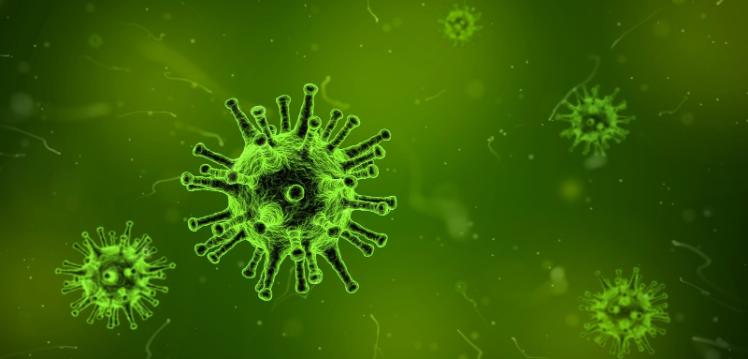
Researchers from Queen’s University Belfast have discovered a cutting-edge way to track both human and avian flu variants using wastewater.
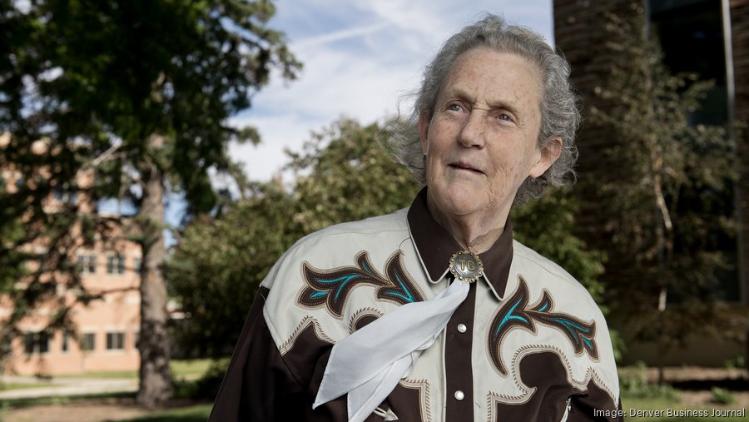
This week, Queen’s University Belfast excitingly welcomes renowned American academic and animal behaviour expert, Dr Temple Grandin to campus.
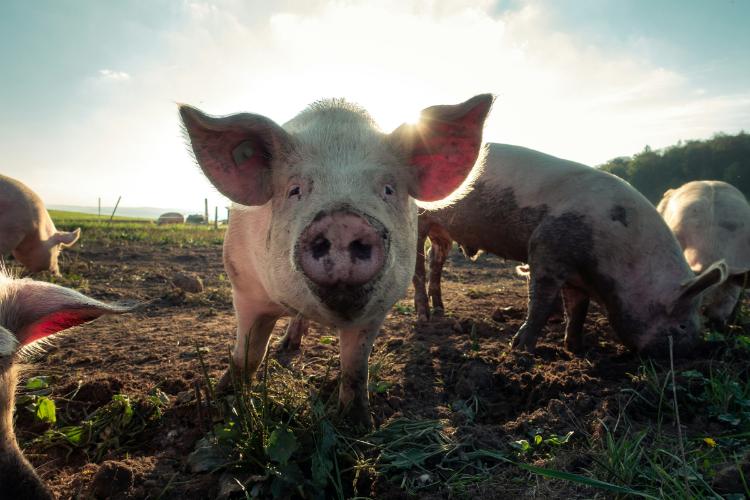
Queen’s University Belfast secures funding from DAERA as part of the US-Ireland R&D Partnership Programme to use AI for improving piglet survival rates by monitoring feeding patterns and enhancing husbandry practices.
-750x506.png)
New research has found that those who consume more foods rich in flavonoids, such as berries, tea, red wine and dark chocolate, could lower their risk of dementia.
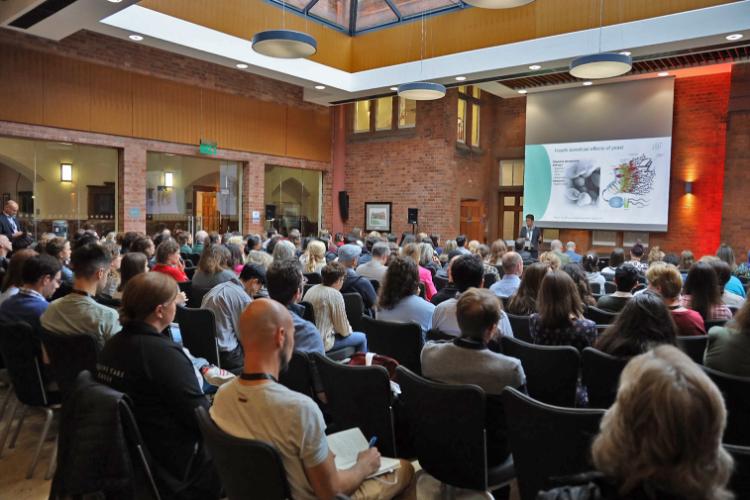
Queen's University were delighted to host the European Society for Veterinary and Comparative Nutrition (ESVCN) Congress, and the associated activities of the European College of Veterinary and Comparative Nutrition (ECVCN), for 3 days last week.
-750x500.png)
Much of the foul-smelling, so-called algal mats banked up around the shore of Lough Neagh consist of bacteria primarily associated with faeces from livestock or human-effluent.
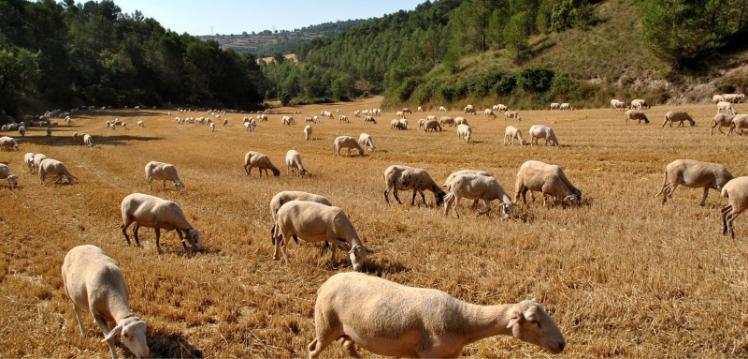
Across the world, farmers and governments are under growing pressure to address emissions from livestock, leading to calls to reduce livestock numbers.
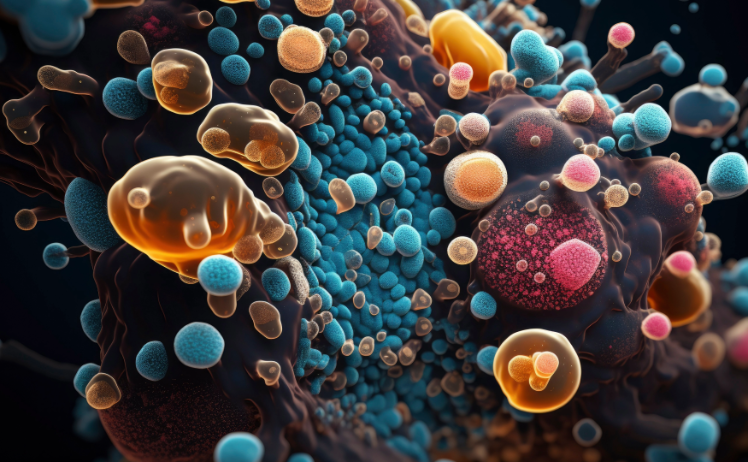
Eight new networks, combining different research specialisms, will work together to tackle one of humanity’s biggest threats, antimicrobial resistance (AMR).
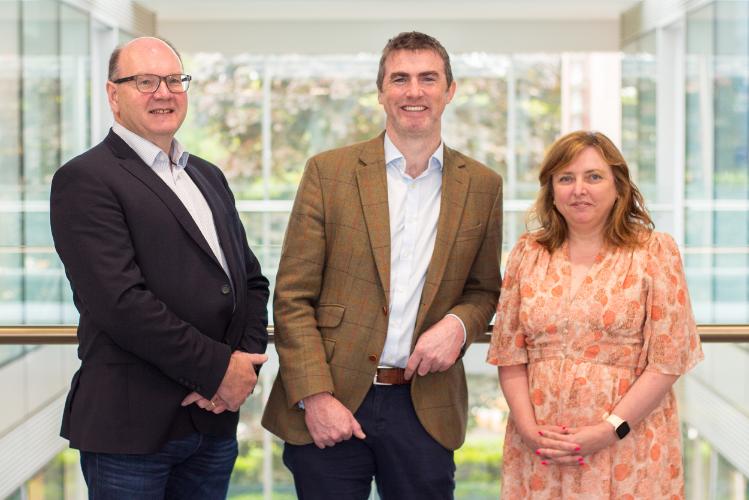
Dr Steven Morrison has been awarded an Honorary Professorship by the Institute for Global Food Security (IGFS) at Queen’s University Belfast.
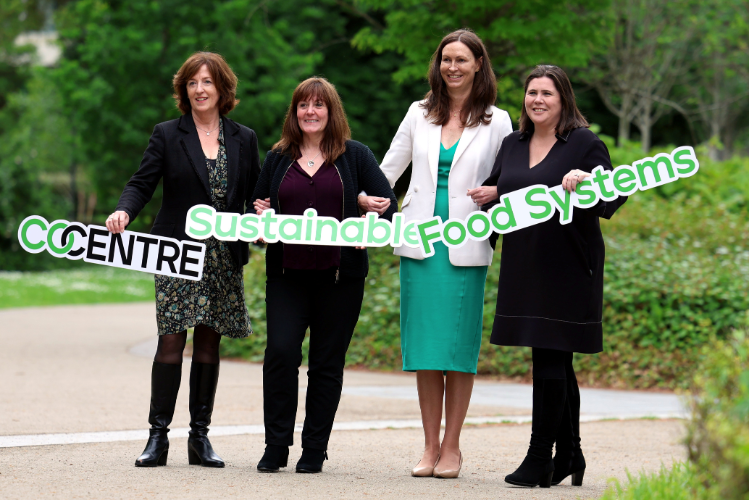
The new €35m research collaboration will aim to drive societal and political change in food systems to help the industry's transition to climate neutrality by 2050.

The new Co-Centre will deliver solutions to the most pressing challenges posed by climate change, biodiversity decline and water degradation across Ireland, Northern Ireland and Great Britain.
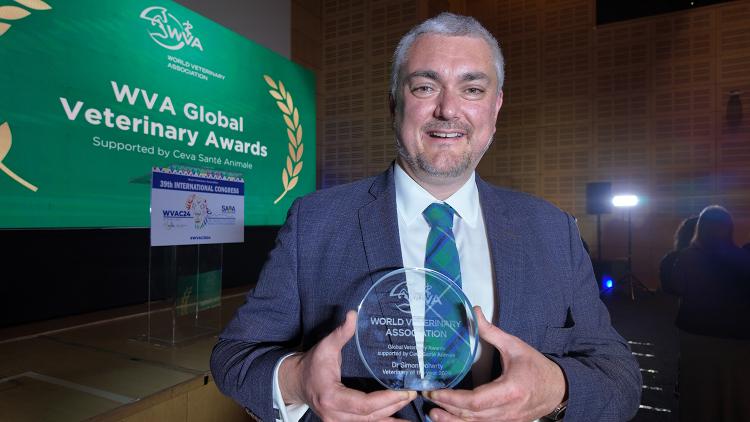
Dr Simon Doherty ‘thrilled’ to take home the prestigious World Veterinary Association title.
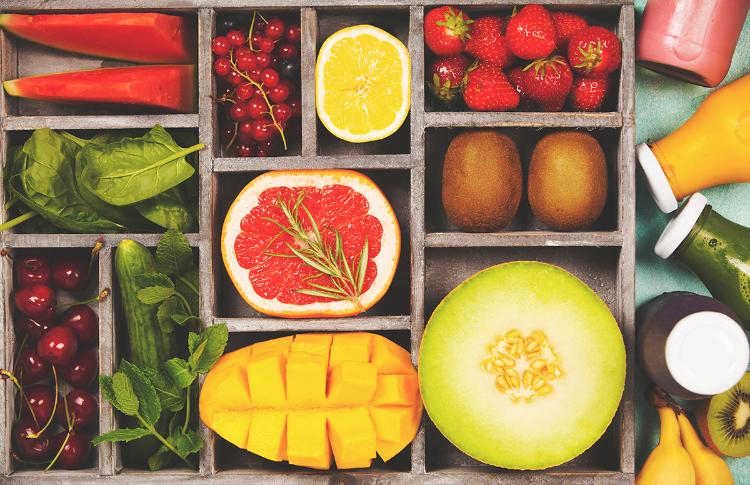
Queen's University and MOBILion Systems, Inc. have launched a new partnership to advance food safety by innovating test methods and tools that aim to quickly identify contaminants, enhancing current technologies for better detection.
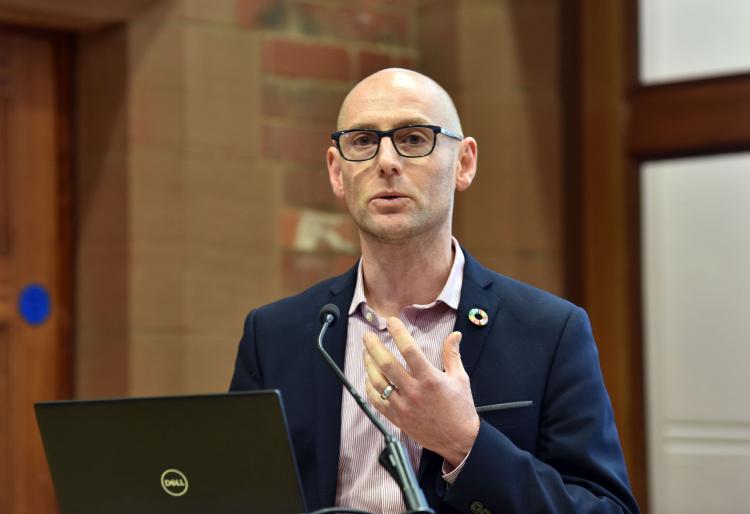
In a thought-provoking lecture held at Riddel Hall recently, Dr. Pete Falloon, Met Office's lead on Climate Service for Defra on Food, Farming, and the Natural Environment, asked the question "What does climate change mean for the UK food system?"

Biological Sciences and IGFS colleague has been announced as the winner of the “One Health” category of the World Veterinary Association (WVA) Global Veterinary Awards.
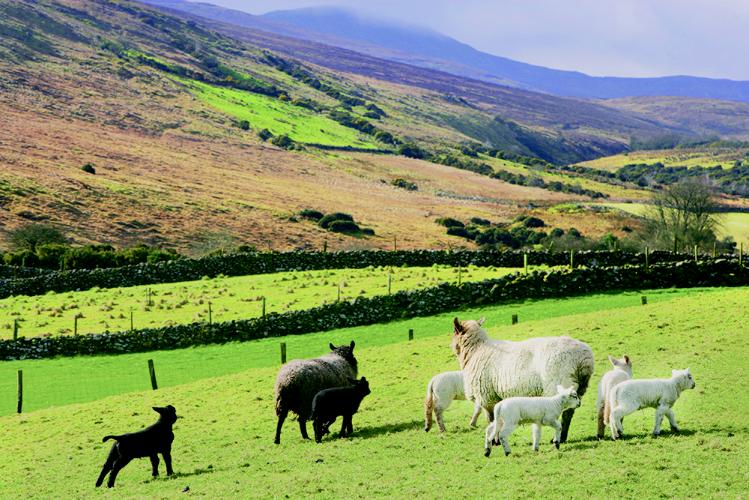
Queen’s University Belfast (QUB), Agri-Food and Biosciences Institute (AFBI) and Ulster University (UU) are members of a winning consortium of 34 organisations awarded a £6.5m government grant to establish a ‘Land Use for Net Zero’ (LUNZ) Hub.
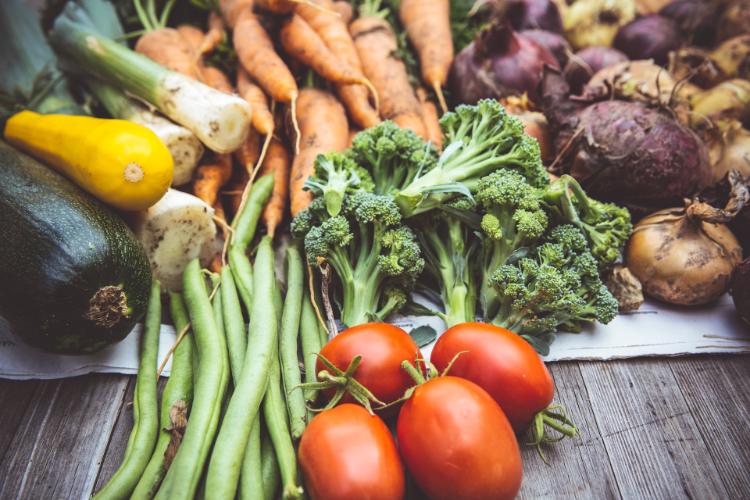
A new population-based study led by Queen’s University Belfast has found that a substantial number of type two diabetes cases could be avoided through adopting a healthy plant-based diet.
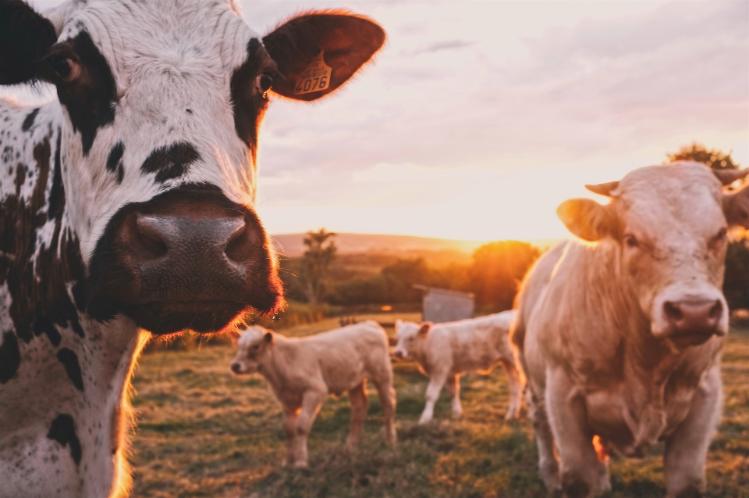
A global research project led by Queen's University Belfast and involving 24 institutions and universities worldwide, will explore the microbial world within rumen, a complex and little-studied ecosystem in livestock.
-750x500.png)
Queen’s University Belfast and Almac Discovery have announced a five-year project to develop a new Chemoproteomics Centre of Excellence for drug discovery.
-750x502.png)
The new Co-Centre for Sustainable and Resilient Food Systems will be managed jointly by Queen’s University Belfast and University College Dublin (UCD), working closely with the University of Sheffield.
-750x501.png)
The Climate+ Co-Centre will be the home of research, innovation, and policy development across the interlinked challenges of climate change, biodiversity loss, and water degradation on the islands of Ireland and Britain.
-750x500.jpg)
Queen’s, in collaboration with University of Lincoln, University of Aberdeen and University of Strathclyde, has secured £10.6M in funding from UK Research and Innovation (UKRI) to establish SUSTAIN, a transformative Centre for Doctoral Training.
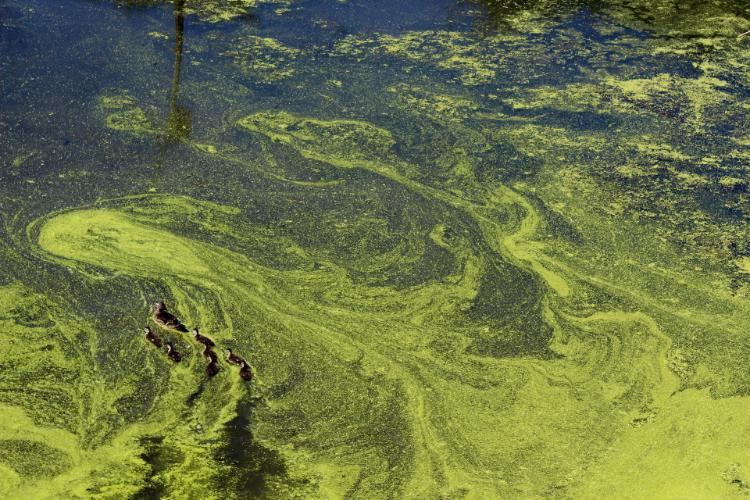
There has been significant public and media interest in the ‘perfect storm’ that has led to Lough Neagh experiencing one of its worst seasons ever for blue green algae blooms.
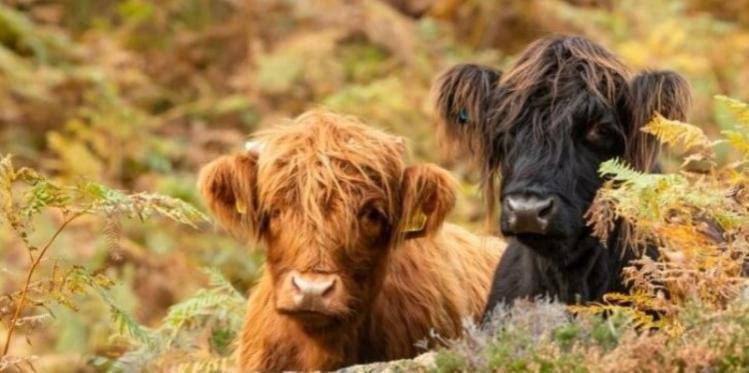
The Queen’s-AFBI Strategic Alliance is celebrating after two of its proposals secured prestigious funding from BBSRC as part of an £11.5M UK Government campaign to ‘revolutionise UK livestock' and improve animal health.
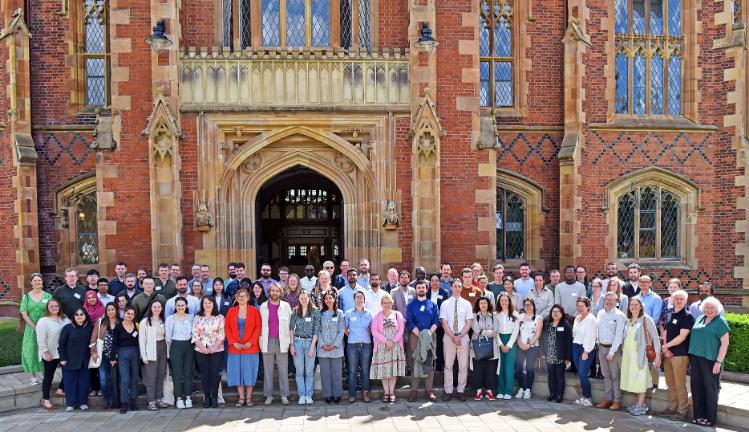
The Irish Plant Scientists’ Association Meeting (IPSAM) returned in style with a recent meeting co-hosted by Queen's University Belfast and the Agri-Food and Biosciences Institute (AFBI). Below, a delegate reflects on a successful gathering.
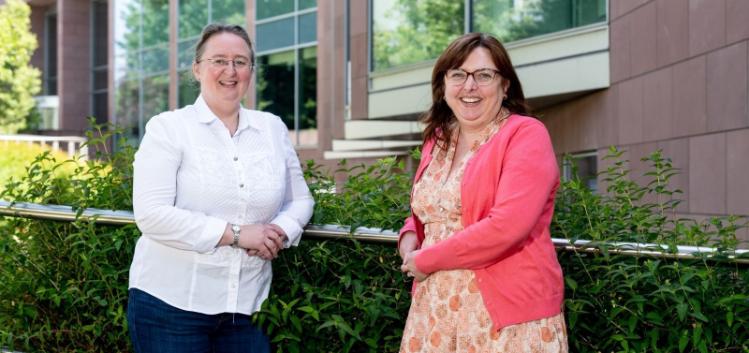
The Queen's-AFBI Alliance is celebrating ‘success squared’ after two of its leading members were honoured, separately, by the respected British Society for Animal Science (BSAS).
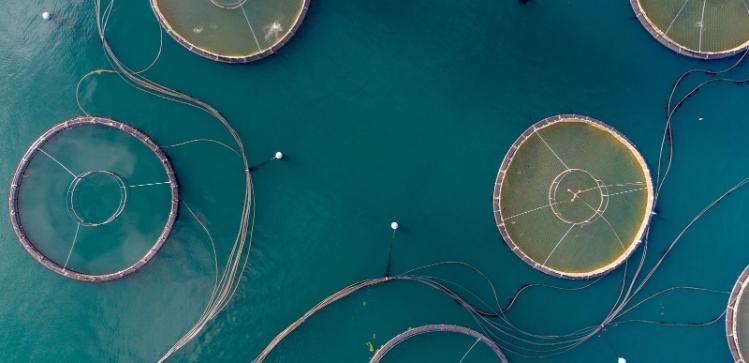
A potentially game-changing method to ensure the authenticity of food has achieved 100% accuracy in a research project led by IGFS – with potential for application across the global, food-supply chain.
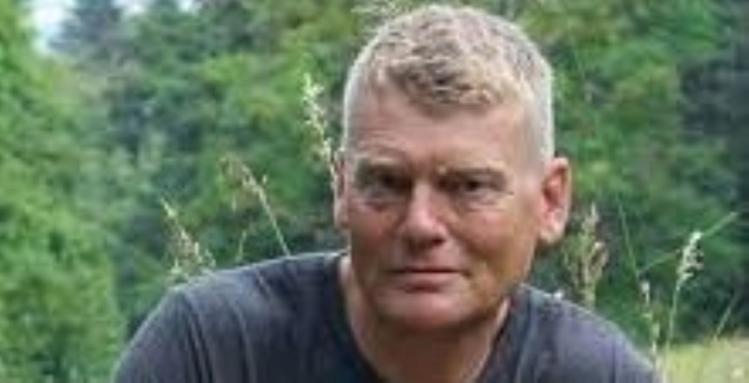
IGFS is hosting a one-day conference, 'Save Our Wild Isles', in partnership with RSPB NI and The National Trust to look at the role of agriculture in the context of nature and the climate crisis.
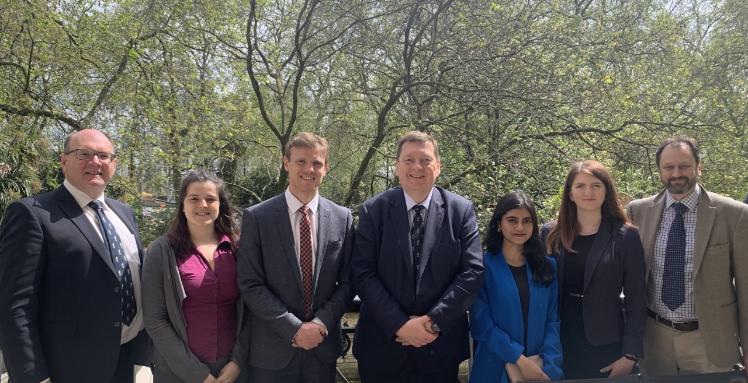
Four PhD students have been selected to attend the invitation-only City of London Food & Drink Lecture – where they will mix with royalty and thought leaders from the world of food and farming
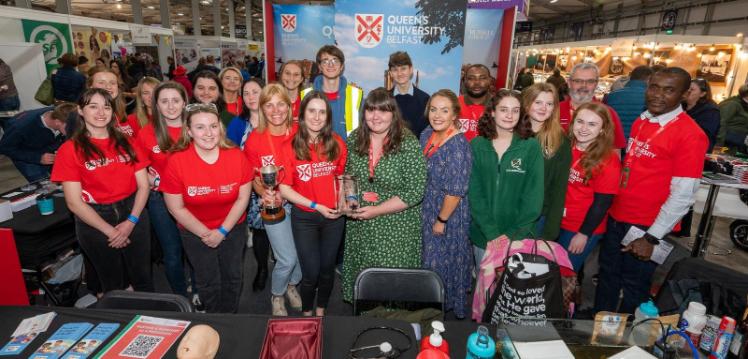
IGFS and SBS played a leading role in the Queen's University stand at Balmoral Show this year - but the whole University enjoyed a successful outing, including a double award from event organisers RUAS, as detailed in the MRCI news release below ...
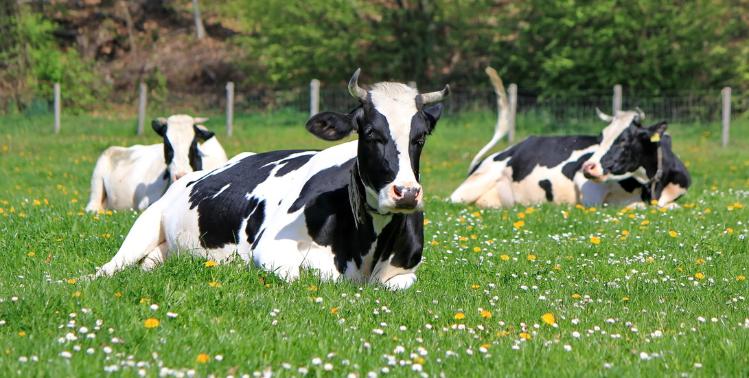
A high-level, international delegation of stakeholders from the worlds of farming and food production recently gathered at Queen’s University Belfast to discuss barriers, and potential solutions, to achieving Net Zero.
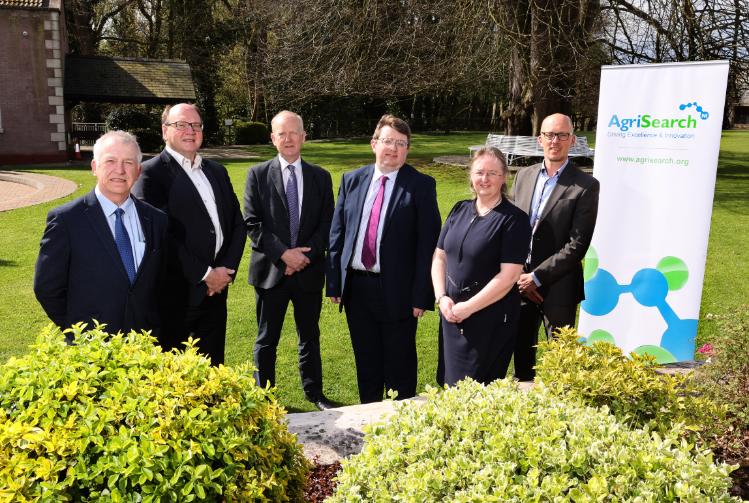
Two new PhD places at Queen's University and AFBI, with a third at Ulster Uni, are to be supported by a new scholarship from NI farmer-funded research body, AgriSearch.
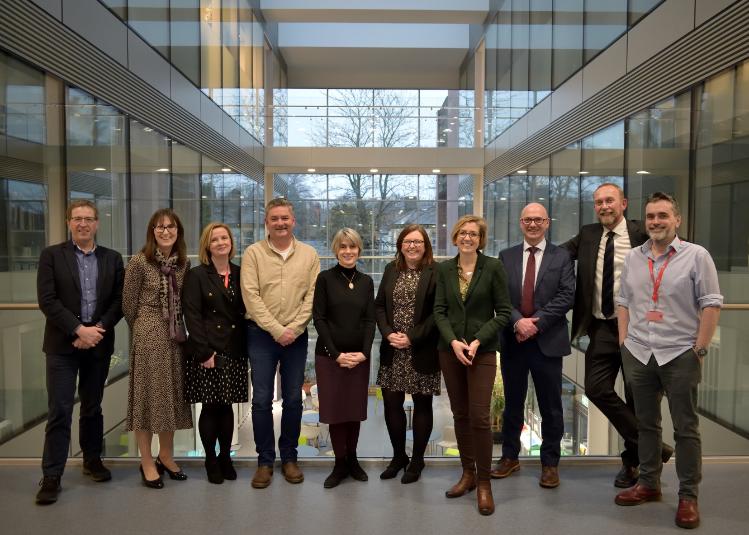
IGFS and the School of Biological Sciences were delighted to host the leadership team from UKRI, the UK government agency that oversees all public investment in science research.
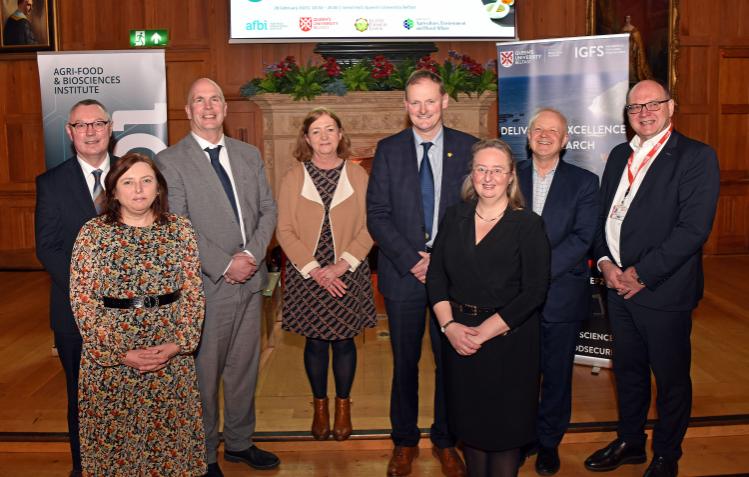
Scottish 'One Health' expert gives the 65th George Scott Robertson Memorial Lecture at Queen's University
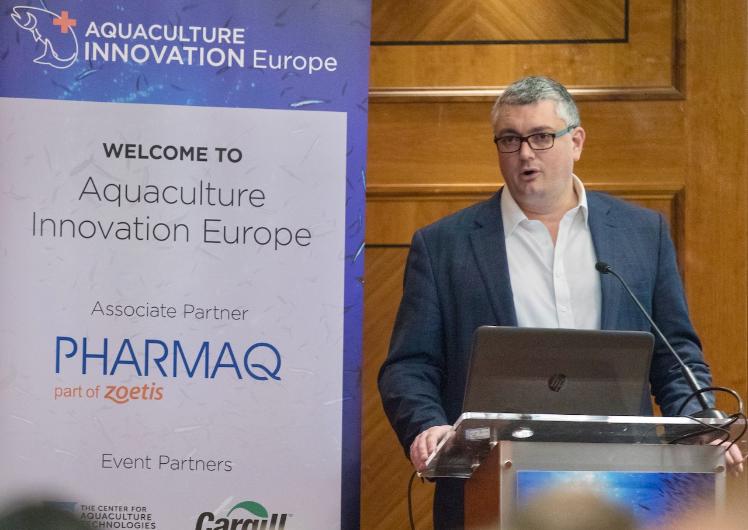
An academic at IGFS and the School of Biological Sciences has been appointed to a senior post at the World Aquatic Veterinary Medical Association (WAVMA).
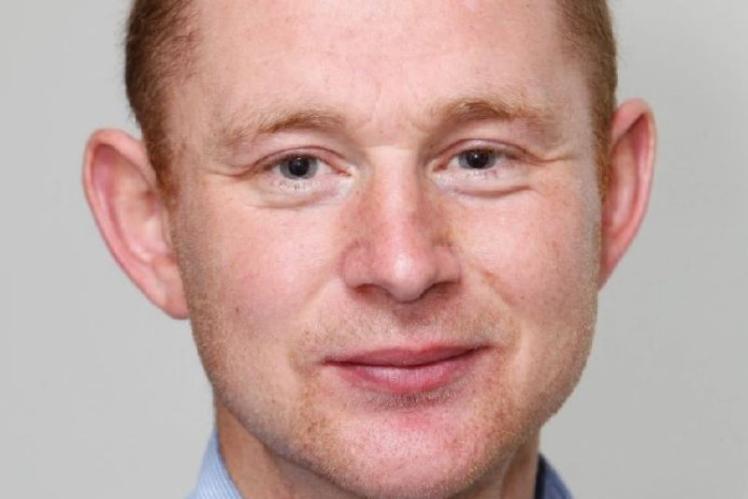
An academic at IGFS & the School of Biological Sciences has been appointed to a high-level UK government committee in the area of animal welfare.

If you celebrate Christmas, chances are you decorate a tree in your home. But how do you make an informed and environment-friendly choice? Dr Paul Caplat, Senior Lecturer in Ecology, guides the way

Aine Anderson won the Privilege Finance Climate-Change 'Thought Leader' Award 2022, for her research into the potential of anaerobic digestion and agricultural waste to de-carbonise the NI heat sector. Below, she explains more about 'greening' energy
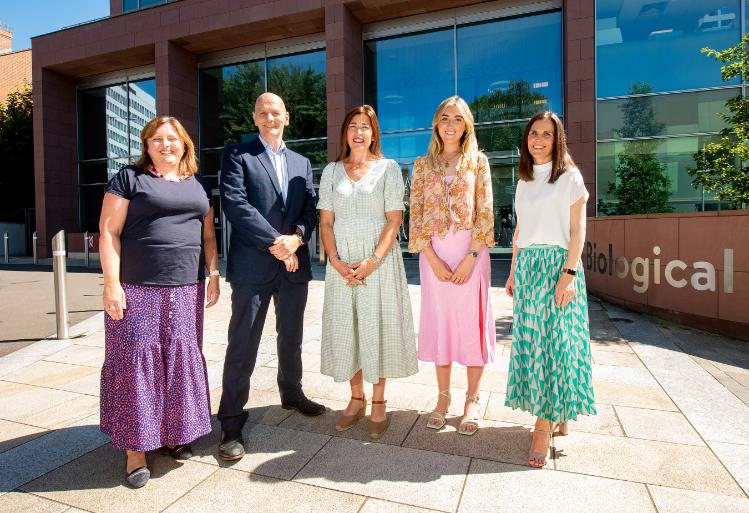
Queen’s and Finnebrogue Artisan have launched a new post-graduate scholarship in memory of Denis Lynn, the founder of Finnebrogue.
